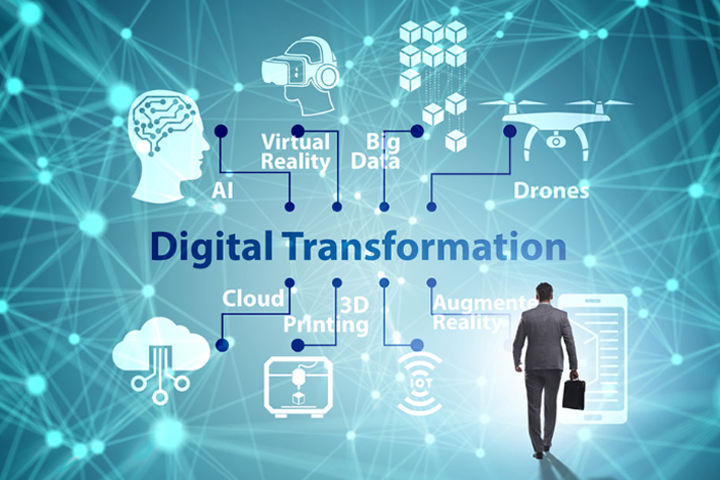
What is Digital Transformation to you?
Published on July 28, 2022
Digital Transformation is the integration of digital technology into an organization’s products, processes, and strategies, to better engage and serve their workforce and customers and thus improve their ability to compete.
Companies should leverage the Digital Transformation to re-evaluate and optimize systems and processes, creating a technology framework to reorient services and data into actionable insights that can improve just about every facet of an organization.
Digital Transformation changes the way an organization operates. Systems, processes, workflow, and culture are all part of this process. It also builds robust infrastructure and skills required for taking advantage of fast-evolving technologies that could confer a competitive advantage.
Role of technology in digital transformation:
In the current scenario where technology is the key economic driver, Digital Transformation places organizations in a position where they can compete, thrive, and survive.
Technology should have the ability to rapidly collect, generate, analyze and transmit data. Artificial intelligence (AI), cloud computing, mobile technologies, social media platforms, and next-generation technologies, such as the Internet of things (IoT), edge computing, and robotic process automation (RPA), have dramatically changed how quickly we get information.
The application of technology in the marketplace by digital leaders has changed the kinds of products and services people expect. The world is now a smaller place and a consumer can utilize a service from any corner of the world, without physically visiting a store. The consumer expects a quick response in terms of queries and product deliveries and a personalized experience.
Benefits of digital transformation:
Digital transformation enables an organization to better serve its principal stakeholders: customers, employees, partners, and shareholders.
1. Increased client base: organizations that have established their age-old business, need to keep growing. The next step to expansion is growing the customer base. When businesses go online, their presence reaches a wider customer base, thus adding to the valuable business.
2. Building brand: with greater digital presence across various platforms, when serving clients across the globe or even nationally, companies increase their presence and began to be identified as a brand.
3. Reduced cost of manufacturing: digitalization increases the order flow and hence the output. it is a very well-known fact that when we manufacture our goods in bulk, there is a lot of cost-saving. The cost reduction is obtained in terms of better raw material pricing, manpower, overheads, transportation costs, electricity, accounting, and much more.
4. Increased reach: increase speed to market with new products and services
5. Increase employee productivity: as the implementation of technologies such as AI and RPA boost worker productivity, reduce errors, and speed time to market — meanwhile, revamped business processes enabled by digital technologies further increase productivity and the pace of business
6. Predictive analysis: gain more insight into individual customers to better anticipate and personalize products and services
7. Enhanced ability to innovate: as an active workforce and with updated technology capabilities support, it encourages experimentation, while also limiting risk.
8. Improved engagement with customers, employees, and business partners, as organizations can better process data to make smarter, more accurate decisions and anticipate the needs of their different stakeholders
Conclusion:
The COVID-19 pandemic accelerated many aspects of digital transformation, as organizations across nearly all industries were forced to limit or even abandon in-person transactions with customers, employees, partners, and suppliers and virtualize as many interactions as possible.
Many organizations believe they must either adapt to the changing market forces driven by digitization or face the wrath of extinction.